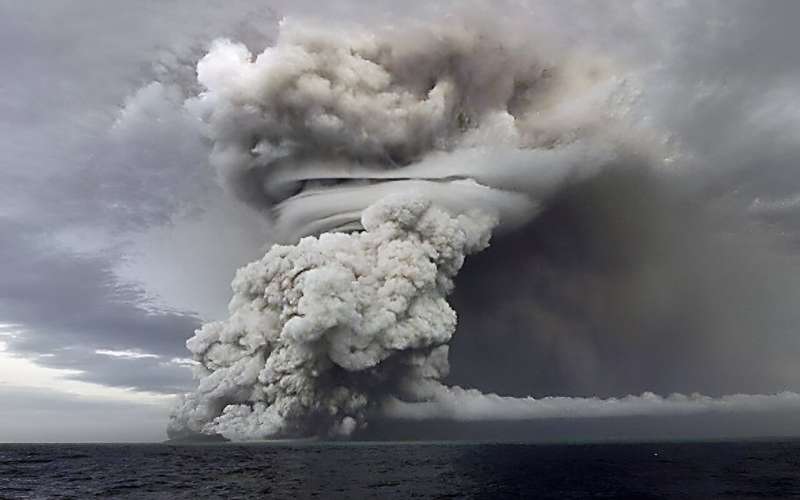The eruption of the Hunga Tonga volcano in January 2022 has sparked new research led by Dr. Andrew Dessler from Texas A&M University, challenging previous assumptions about its impact on climate change.
This unique event injected volcanic aerosols and water vapor into the atmosphere, similar to historical eruptions like Tambora and Mt. Pinatubo that caused global cooling by blocking sunlight.
Unlike other eruptions, Hunga Tonga released a significant amount of water vapor into the stratosphere, increasing stratospheric water content by 10%. Initially thought to contribute to global warming, the team’s findings published in the Journal of Geophysical Research: Atmospheres reveal that the eruption actually led to a cooling effect on Earth.
The research, titled “Evolution of the Climate Forcing During the Two Years after the Hunga Tonga-Hunga Ha’apai Eruption,” involved analysis of NASA and NOAA satellite data to estimate the Earth’s energy balance. The results show that more energy left the climate system than entered it, resulting in a slight cooling effect.
For more information, you can read the full article on phys.org at 2024-07-26 19:15:03.
